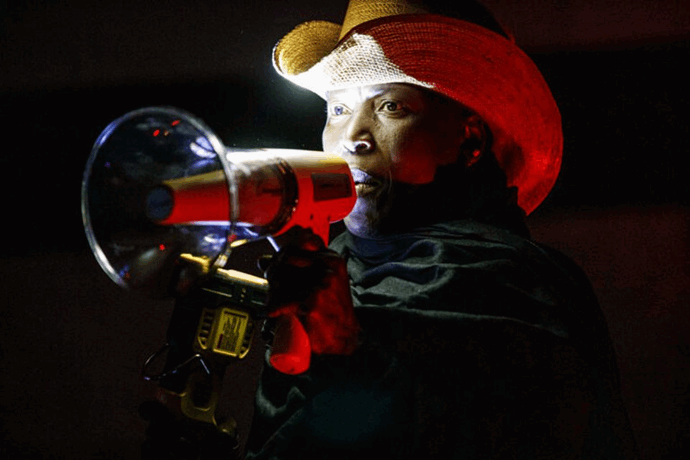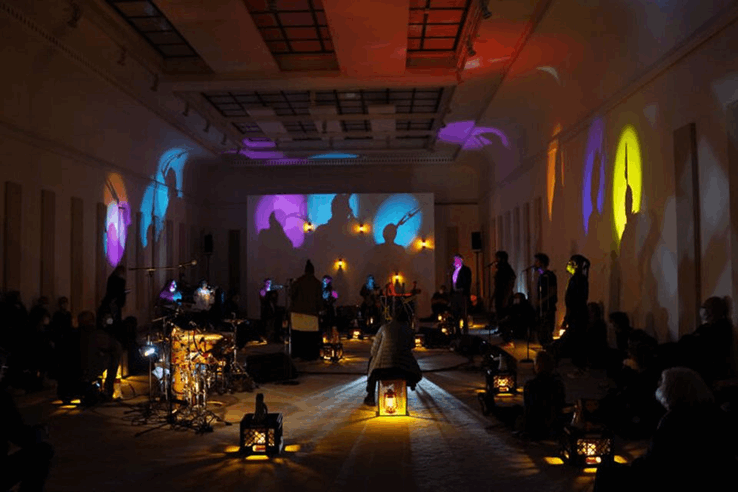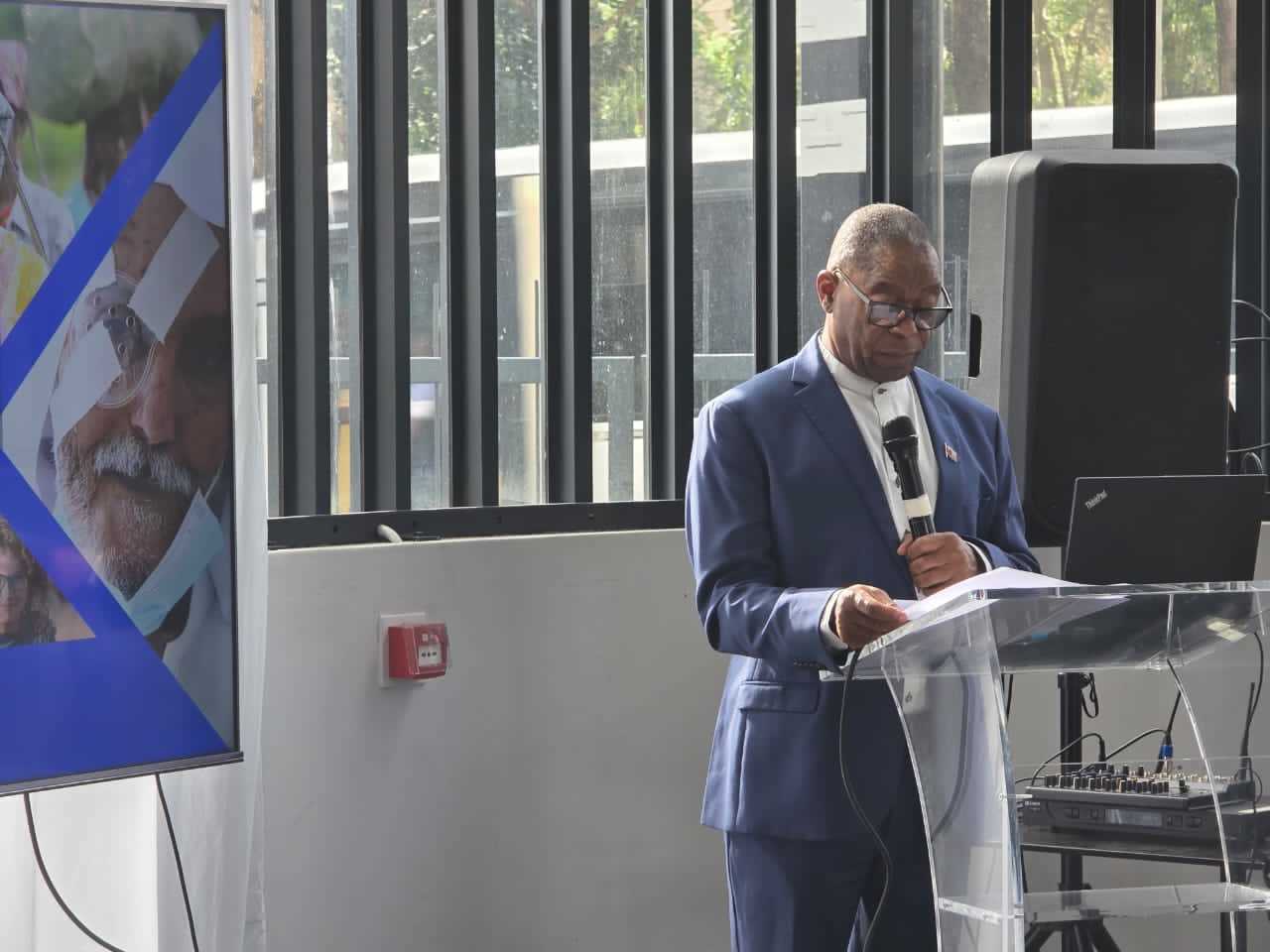
Boston Globe- Arriving in Boston shortly after the lavish and costly coronation of King Charles III, “Nehanda” offers timely reminders of the brutality wielded by the British government against the African colonies it exploited and plundered.
Experienced as discrete, individual sequences, there’s a beauty and power to the sounds and movements of “Nehanda” that is captivating.
But on balance “Nehenda” is heavier on ambience and mood than on clarity of theme and message.
The spell is too often dissipated by the sheer repetition and protracted length of this ambitious work, which is being presented by ArtsEmerson through Sunday at the Emerson Paramount Center.
A concert experience that combines song, dance, spirituality, and stylized allegory of anticolonial resistance, “Nehanda” is the creation of Zimbabwe-born nora chipaumire.
With a cast of nearly 20, including chipaumire as the title figure, “Nehanda” opens with a very lengthy scene of near-prayerful solidarity, as performers sway and sing while standing, then moving, in a circle. It amounts to a defiant and joyous collective cry of “I am.”
There are no surtitles in this production, which is sung and spoken in the languages of all of its participants (Shona, English, Ndebele, Ewe, Afrikaans, and Kriolu, among others).
An incomplete list of the instruments employed onstage are Ngoma drums, vuvuzelas, the talking drum, the saxophone, the calabash, the hosho, the guitar, and literal bells and whistles (there’s some exceptional work by sound engineer Vusumuzi Moyo).
Related Stories

Running more than two hours without an intermission, “Nehanda” is the middle chapter of a six-hour, three-chapter work that premiered last fall at the Alexander Kasser Theater in Montclair, N.J. The songs are drawn from Chimurenga, a form of popular music in Zimbabwe that blends Western styles and the music of southeastern Africa as vehicles for messages of political and social protest.
The idea behind “Nehanda” is to illuminate aspects of Zimbabwe’s long liberation struggle by exploring the legend of Nehanda, once described by chipaumire as “a Zimbabwean Joan of Arc.”
Nehanda is a powerful ancestral spirit who is believed to have possessed, spoken through, and offered guidance to female mediums throughout history. One of them was Nehanda Charwe Nyakasikana, who led the resistance in the 19th century against white rule in the nation now known as Zimbabwe.
That spirit of rebellion comes through in “Nehanda” as performers thrust wooden staffs skyward, stride and skip across the Robert J. Orchard Stage, and walk rapidly in circles while bending side to side.
Late in “Nehanda” comes a sequence involving Judas and Jesus, complete with the former’s death by suicide, that feels tacked on.
Clearly, and admirably, chipaumire is an uncompromising artist who is not afraid to challenge her audience. (Numerous spectators made their way toward the exits as “Nehanda” progressed on Wednesday night.)
But for all the skill and dynamism of chipaumire and her cast, the law of diminishing returns kicks in as scenes run on far longer than they need to.
That said, it’s heartening to see a new and multifaceted contribution to the growing body of work, onstage and onscreen, in which the artistic descendants of formerly subjugated peoples take steps to set the record straight about their history and their ancestors’ fight for independence.




















Leave Comments